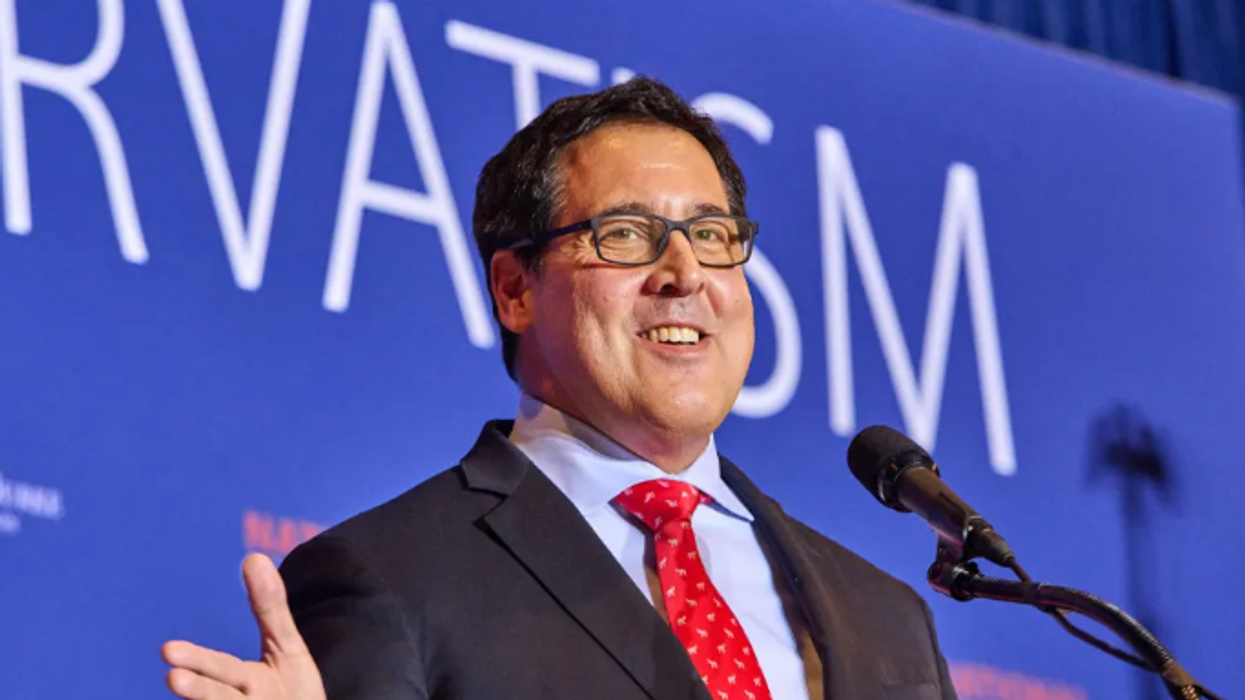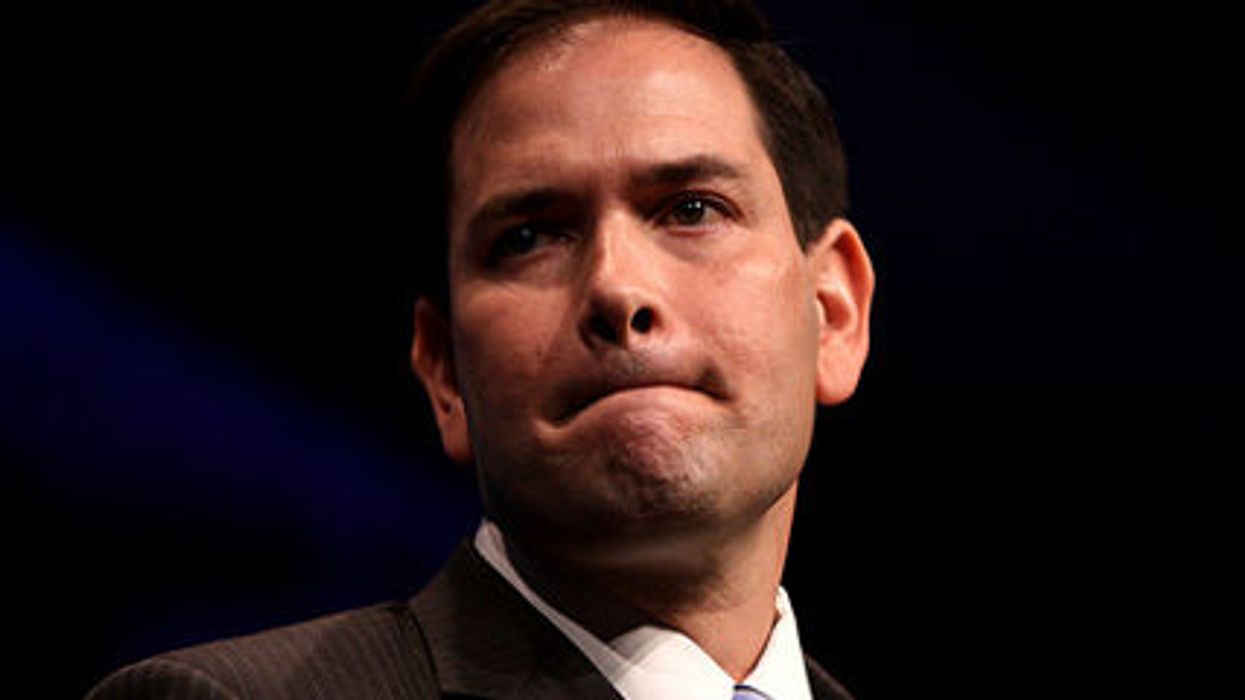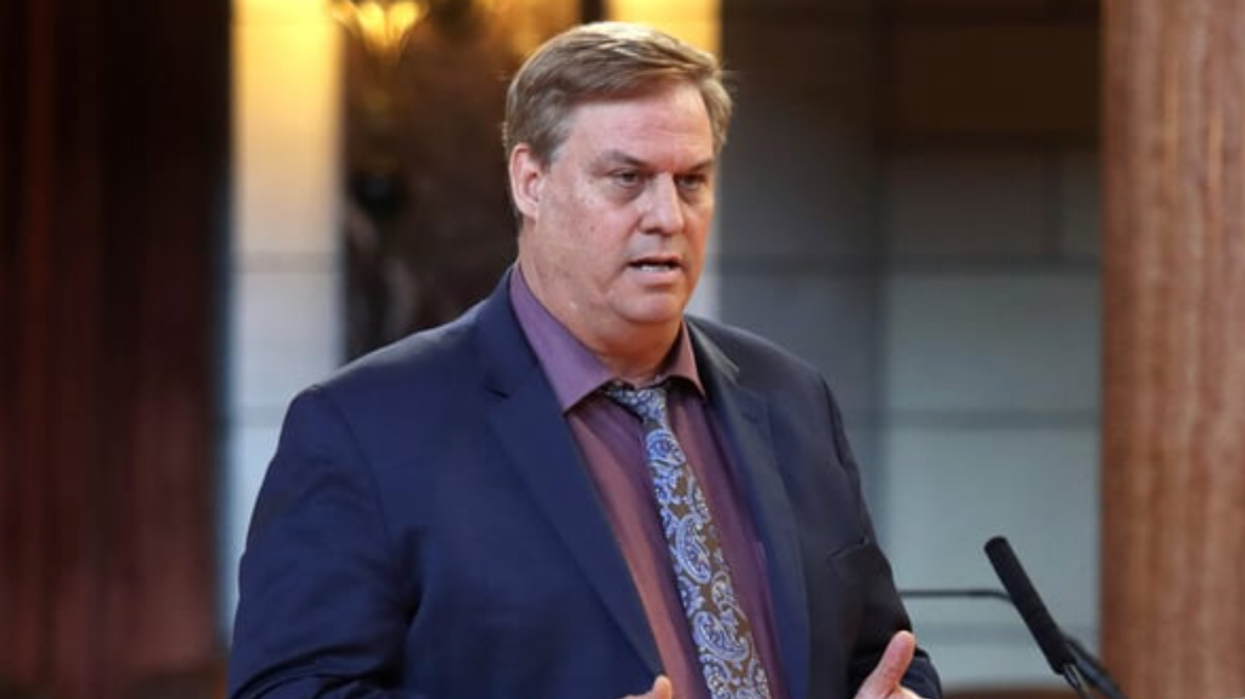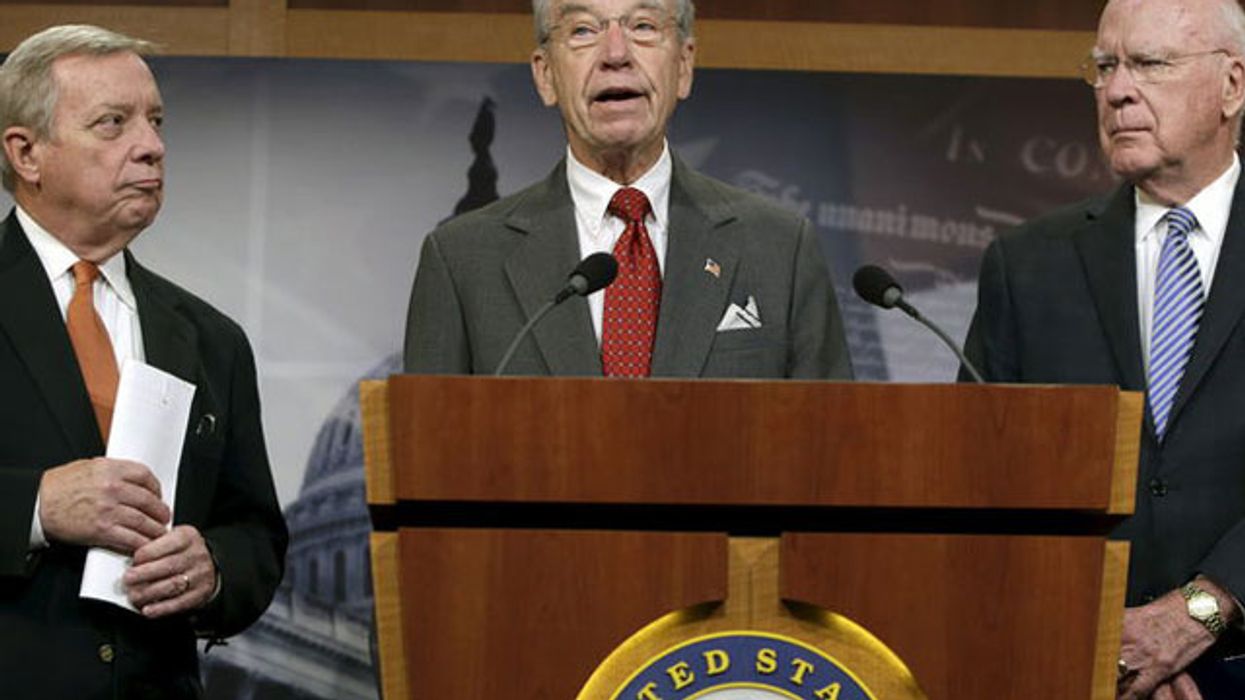Amid Fuentes Blowup, Tucker Carlson Targets Lindsey Graham's Senate Seat
Tucker Carlson’s friendly interview with prominent white nationalist streamer Nick Fuentes, a Holocaust-denying Hitler fan, has triggered a right-wing civil war over the last week, drawing in Republican politicians and reportedly triggering a meltdown at the Heritage Foundation, the conservative movement’s most prominent think tank.
On Wednesday, Carlson opened up a new front in that conflict that seems likely to put him in direct opposition to his former colleagues at Fox News.
Carlson’s latest program features an interview with and endorsement of Paul Dans, a candidate for U.S. Senate who is widely regarded as the “architect” of the politically toxic right-wing manifesto Project 2025. Dans is mounting a primary campaign against Sen. Lindsey Graham (R-SC), who is one of Fox’s most frequent guests.
Both candidates have spoken out on opposite sides of the Fuentes firestorm in recent days, with Graham identifying himself as a member of “the ‘Hitler sucks’ wing of the Republican Party” and Dans declaring: “Tucker Carlson is a leading light of America First, and anyone taking out after him is not America First by definition.”
Fox has championed Graham for years
Graham has appeared on Fox’s weekday programs at least 565 times since Media Matters began tabulating cable news guest appearances in August 2017 — more than any other member of Congress except for Rep. Jim Jordan (R-OH) and Sen. Tom Cotton (R-AR). Fox hosts regularly praise Graham, who repeats the network’s talking points and has used the network’s stars as a sounding board for his policy ideas.
The South Carolina Republican is a particular favorite of Sean Hannity, President Donald Trump’s political operative who also hosts a propaganda show on the network. Hannity hosted Graham 270 times over that period — more than any other congressional guest by more than 40 appearances.
Fox founder Rupert Murdoch is personally invested in Graham’s political success, as messages made public during the Dominion Voting Systems defamation lawsuit against the network show. In October 2020, when Graham was last on the ballot, Murdoch emailed Fox CEO Suzanne Scott: “You probably know about the Lou Dobbs outburst against Lindsey Graham. Could Sean say something supportive? ... We cannot lose the Senate if at all possible.” Scott later followed up to confirm she had “addressed the Dobbs outburst.”
Murdoch was apparently referring to Dobbs, then a Fox Business host, saying during an October 23, 2020, rant: “I don’t know why anyone in the great state of South Carolina would ever vote for Lindsey Graham. … Graham has betrayed President Trump at almost every turn.” Hannity did a friendly interview with Graham three days later and stressed to viewers that the senator’s reelection was critical.
Carlson’s brand of ethnonationalist isolationism, meanwhile, put him in conflict with Graham even when he was still at that network.
Carlson attacks Graham as an extension of the Fuentes firestorm
On Wednesday, Carlson addressed the ongoing debate spurred by his effort to launder a toxic antisemite’s bigotry into the mainstream right. In a monologue at the top of his show, the host positioned himself and his faction as the true heirs to Trump and the America First movement, claimed that his critics are seeking “a return to the Republican Party that we had before, which is a party that has all kinds of other agendas, most of which are never publicly revealed, and that spends a lot of its time policing its own members.”
Carlson went on to accuse his opponents of dishonestly invoking the Holocaust as a ploy to bolster their effort to take control of the GOP after Trump leaves office:
The people who are benefiting from the old arrangement, which only continued because it was maintained by threats and silence, those people are going absolutely bonkers. And they have been all week, and they're claiming it's about one thing, the Holocaust or something like that.
But, no, really it's about who controls the Republican Party after Donald Trump. That's what it's really about. So ignore the moral posturing. This is a power struggle as all political parties have from time to time, and this one just happens to have a lot of emotionally unbalanced hysterical people with no limits who have access to social media, so they're scaring the crap out of everybody.
But Carlson didn’t only give his viewers and supporters a reason to disregard the complaints of his critics — he also offered them a target.
Graham, Carlson told them, “symbolizes what we're actually debating and the stakes of this conversation.” And for the remaining half-hour of his monologue, he attacked Graham’s views on Israel, immigration, the Russia-Ukraine war, Trump’s Russiagate scandal, the murder of George Floyd, and more, presenting the South Carolina senator’s positions as anathema to the MAGA movement.
Carlson then introduced Dans and praised him for taking on Graham, who he said “is very obviously evil. And if he is the face of the Republican Party, normal people can't support it, including me. So it's so important to send the statement that we are not for killing of innocence or bloodlust or whatever weird demonic trip Lindsey is on.” Carlson added that he is “really praying for your victory.”
Dans — who described Graham upon launching his campaign as “a 70-year-old childless warmonger” who “has no stake in the future of this country” — told Carlson's audience that he is “original MAGA” and his race “is about the future of the movement, whether MAGA, America First, lives or dies.”
The remainder of the show was a typical Carlson special. The host gave Dans space to lay out his biography and make his pitch, and he egged on Dans' attacks on Graham. At one point, Carlson mocked Graham for being “scared shitless” during the January 6 insurrection, leading Dans to explain that Graham “knows that 2020 was infirm, it was a rigged and stolen election, and he did nothing really for it,” which Dans contrasted with what he described as his own “battle scars” from aiding Trump’s election subversion plot.
Carlson concluded the interview by asking Dans, “How can people who support the program you just described and think that it's so essential to stop this insanity before we have, like, World War 6 — how can they support your campaign?” Dans urged viewers to go to his campaign’s website and donate.
It’s worth thinking of Carlson’s latest program as a response to The Daily Wire’s Ben Shapiro. Shapiro devoted his entire show on Monday to a withering critique of Fuentes and his “groyper” supporters — whom he termed “neo-Nazis” — as well as Carlson and the Heritage Foundation, which he said had “facilitated and normalized” that faction “within the mainstream Republican Party.” Shapiro’s program featured numerous video clips of Fuentes, Carlson, and Heritage Foundation President Kevin Roberts to build his arguments.
Carlson, by contrast, never mentioned the names of any of his critics. Rather than address their arguments directly, he positioned them as lying about their motives in order to steal Trump’s legacy. Instead of playing defense he went on the attack, targeting for defeat Graham, a politician whom he views as supporting that project. In doing so he suggested his viewers should back that politician’s opponent, Dans, to demonstrate their loyalty to the president.
Fox is the biggest weapon Graham has in response, other than Trump himself, and the senator was on Hannity’s show the hour after the Dans interview dropped. But it remains to be seen how eager Fox’s stars really are about getting down in the muck with their former colleague.
Reprinted with permission from Media Matters












